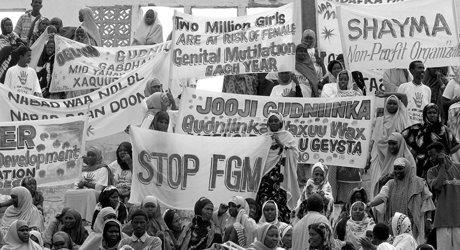Sudan has criminalised female genital mutilation/cutting (FGM/C) with a penalty of up to three years’ imprisonment and a fine.
The amendment to the country’s criminal code comes four years after efforts to introduce a national law banning the practice by Omar Hassan al-Bashir, Sudan’s ousted ruler, were quashed due to backlash from religious conservatives.
The transitional government that replaced al-Bashir in April last year passed the landmark law on 30 April 2020. The rights of women in Sudan have gained prominence following the pivotal involvement of women and girls in the nine-month-long street protests which culminated in the ousting of the former leader. The transitional government has pledged to prioritise women’s rights, and women have taken on a number of prominent roles within the cabinet, including labour and social development.
FGM/C involves the partial or total removal of external female genitalia. The wound is then sewn up, which can lead to the formation of cysts, result in painful sex, and prevent orgasm.
The United Nations estimated in 2016 that 87% of Sudanese women and girls between 15 and 49 were circumcised. The practice is widespread throughout Sudan, despite six of the country’s 18 states having already banned FGM/C.
Activists heralded a new era for women’s rights in Sudan, but pointed to countries with similar laws that have not seen a reduction in numbers of circumcisions performed. There are calls for a changing of minds in communities, where the practice is bound up with cultural and religious beliefs, and is seen as necessary to prepare daughters for marriage.
